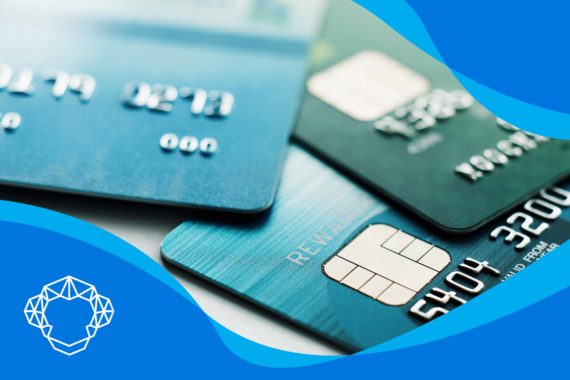In the world of e-commerce and online transactions, you’ve probably heard many terms related to processing tossed around equally. The distinction between each can be confusing. Before you decide which one you need for your business, understand the difference between credit card processor vs. gateway.
On a retailer’s website, a payment gateway is a section where clients may safely enter their credit card details. A payment gateway also confirms the legitimacy of a customer’s credit card. From a retailer’s point-of-sale system, a payment processor sends card information to the banks and card networks associated with the transaction.
The Basic Difference – Credit Card Processor vs. Gateway
In the world of e-commerce and digital transactions, it’s vital to understand the different steps involved in the process, how they work, and what their roles are. When it comes to credit card gateway vs processor, it’s important to know how they play unique roles that are interconnected.
In a nutshell, a payment processor manages the actual financial transaction. On the other hand, a payment gateway serves as a digital bridge between a portal such as a website or a mobile phone and the acquiring bank or credit card processing companies. Its role is to encrypt sensitive data, provide a secure path for transactions, and authorize them.
Overview of Credit Card Processors and Payment Gateways
Both these elements have distinct roles, but they also work in harmony to ensure smooth merchant services for credit card processing. The following table provides a more detailed comparison.
| Feature | Credit Card Processor | Payment Gateway |
|---|---|---|
| Purpose | Primarily handles the financial transaction, verifies the funds, and coordinates transfers between banks. | Facilitates the transfer of information between a portal (website or mobile phone) and the bank or processor. |
| Primary users | Used by businesses of all sizes to manage credit card transactions | Used by e-commerce and online businesses to authorize customer card transactions. |
| Connection to Bank | Has a direct connection to banks and credit card networks to handle transactions. | Connects the merchant's website to the processor/bank to relay transaction information. |
| Security | Handles sensitive credit card data, ensuring PCI compliance and safeguarding customer information. | Secures data by encrypting sensitive information and providing a secure path for it to follow. |
| Settlement | Processes settlements, withdrawing funds from the cardholder’s account and depositing them into the merchant's account. | Primarily involved in the authorization of the transaction, not the settlement. |
Payment Gateway Role Explanation
Gateways are a way to collect and then verify details off of the customer’s credit card, and that technology allows merchants to accept non-cash purchases. Basically, it is a virtual version of a POS – point-of-sale system or, if you prefer, a digital cash register that you use to enter information off of cards. Here’s a brief step-by-step explanation of the role of a payment gateway in online transactions:
- When a customer places an order from an online business, they are asked to choose a payment method, and they input a credit or a debit card into their details.
- The gateway then secures the customer’s card details by encrypting the sensitive information to ensure that the transaction is secure. This includes the card’s number, expiry date, and also CVV.
- The encrypted data is then sent to the cardholder’s bank for transaction approval.
- The bank verifies the transaction – it checks the account’s balance and other security checks to confirm the validity of the transaction.
- Depending on the outcome and whether the bank has verified the transaction as a valid one, it will either approve or decline it. The result, be it approval or decline, is then transmitted back through the payment gateway to the website where the transaction was initiated.
- If the transaction is approved, the merchant can then fulfill the customer’s order. However, the approved funds are not immediately transferred to the merchant’s account – that happens at the settlement stage, which is typically handled by the payment processor.
This way, gateways play a vital role in the credit card processing of online purchases and securing sensitive data. In a nutshell, it’s essential to use it in order to grow your business rapidly because secure, fast, and reliable payment processing is of paramount importance to customers.
When Does a Merchant Need to Use a Gateway?
Today, branching into the world of online shopping from traditional shopping means setting up an e-commerce website or any other online platform where goods and services are sold. And setting up an online store means integrating a gateway to be able to process transactions securely and efficiently. It’s applicable to different types of businesses – whether you’re a small business owner selling handmade crafts, a restaurant offering online ordering for delivery or pickup, or a large retail operation with an extensive online catalog.
Beyond e-commerce, if your business uses invoicing software and you want to give your clients the option to pay their invoices directly online, it’s easier to manage through a gateway. Similarly, if you run a non-profit organization and accept donations online, this technology can be set up to handle those kinds of transactions.
Even for physical stores, a payment gateway could be beneficial for contactless payments or if you have a mobile point-of-sale (POS) system. It is also needed when transactions involve subscriptions or recurring billing, as it securely stores the customer’s payment information and automates the billing process.

What Is a Payment Processor and When Does Your Business Need It?
A credit card processing company or payment processor is a company chosen by a merchant in order to handle transactions with credit and debit cards and other channels. They are responsible for ensuring the transaction between a merchant (a business selling goods or services) and the issuing bank goes smoothly.
It works simply – when a customer pays for a product or service with a credit or debit card, the payment processor validates the cardholder’s information. Next, it ensures there are sufficient funds, allows the transaction to be completed, and finally transfers the funds to the merchant’s account (it later appears on the statement).
Does a Processor Make a Difference When Doing Business?
A payment processor is essential for any business that wishes to accept payments via debit or credit cards, either online, in-store, or over the phone. Businesses need payment processors in the following scenarios:
- Brick-and-mortar stores, or simply – physical stores that want to handle card-not-present Here, both the processor and processing technology integrate with each other to ease the transactions.
- Businesses that sell both online and in physical locations will need credit card processing services that can handle both types of transactions.
- Businesses that operate on a subscription model or have recurring billing also need a processor to manage these payments.
- If a business wants to accept payments over the phone or through a mobile app, a payment processor will facilitate these transactions.
If your business wants to accept card-based payments in any form, you’ll need a payment processor, as they are the backbone of all electronic payment transactions, ensuring that funds move seamlessly and securely from customers to businesses.

What to Look For in Processors?
When running a business, choosing the right payment processor is an essential decision that can significantly impact both the customer experience and overall revenue. Since such a company manages all the card transactions of your business, acting as a bridge between your customer’s bank and your bank, it should be chosen carefully. However, with so many options available, determining the best fit for your specific needs can be challenging. There are some critical factors that every enterprise should consider before making a decision.
It’s Best to Understand All Costs and Fees
One of the most important aspects when choosing the right processor for all merchant services is their rates. Processors might have different types of fees, including transaction fees, monthly fees, setup fees, and even fees for not meeting a minimum number of transactions. You should also be aware of any potential hidden fees.
Security of Transactions
The payment processor should be PCI-DSS compliant, ensuring that the customer’s payment information is secured. Other security measures, such as tokenization and encryption, are also important.
Types of Payments Accepted
Make sure your processor can handle all the types of payments you want to offer. This includes different types of credit and debit cards, as well as newer payment methods like digital wallets, if applicable.
The Reliability of the Processor
Look for a processor with a strong track record of reliable service. Downtime can mean lost sales, so you want a processor that ensures your payment system is always up and running.
Ease of Integration
The processor should be easy to integrate with your existing systems, whether that’s your point-of-sale system, your online shopping cart, or both.
Customer Support
Check if the processor offers solid customer support. You’ll want to be able to get help quickly if you encounter any issues.
Advantages of Automated Payment Systems
The integration of an automated payment solution can revolutionize the way a business works. It does so by offering much better efficiency, financial savings, enhanced customer service, and better financial insights. It makes it a worthwhile investment for enterprises of all sizes.
Efficiency and Cost Savings
One of the main benefits of processing is the efficiency it brings. It significantly reduces the time and effort required in traditional shopping, where you take only cash or checks, freeing up employees to focus on other important tasks and increasing overall productivity. Moreover, this automation can lead to considerable cost savings. By eliminating the need for paper invoices, checks, and postage, businesses can save on material and other unnecessary costs.
Reduced Errors and Improved Cash Flow
Traditional processing is prone to human error, which can cause different issues, including overpayments, underpayments, or missed ones. You can greatly reduce these errors, ensuring accurate and timely transactions. In addition, you can also have more predictable payment cycles, leading to improved cash flow management. An enterprise can have a better understanding of when incoming payments will be received, so the financial predictions and forecasts can be managed in a better way.
Customer Convenience and Security
From the customer’s perspective, automating the process brings unparalleled convenience. A client can easily set up recurring billing, ensuring everything is paid on time without the need to think about due dates or the need to manually handle each installment. In terms of security, you also gain many security features, including encryption and fraud detection tools. These provide a higher level of security compared to manual methods.

Find a Good Solution for Automated Payments
Adopting an automated payment solution such as credit card processing and a payment gateway is a wise move that can transform the efficiency and convenience of your business. The benefits range from reduced processing times and cost savings to improved cash flow management, enhanced security, and a much more convenient experience for your customers. As the digital landscape continues to evolve, it’s more important than ever to invest in a solution that keeps your business competitive and brings it to the top.
With Merchant Chimp, you can take full advantage of an exceptional payment processing service designed with your needs in mind. Get in touch with us today to discover how we can support your enterprise in its journey toward efficiency and growth. We offer many conveniences, including merchant services and a discount program. We offer our support throughout the US – from Los Angeles to cities like Atlanta, Georgia.








